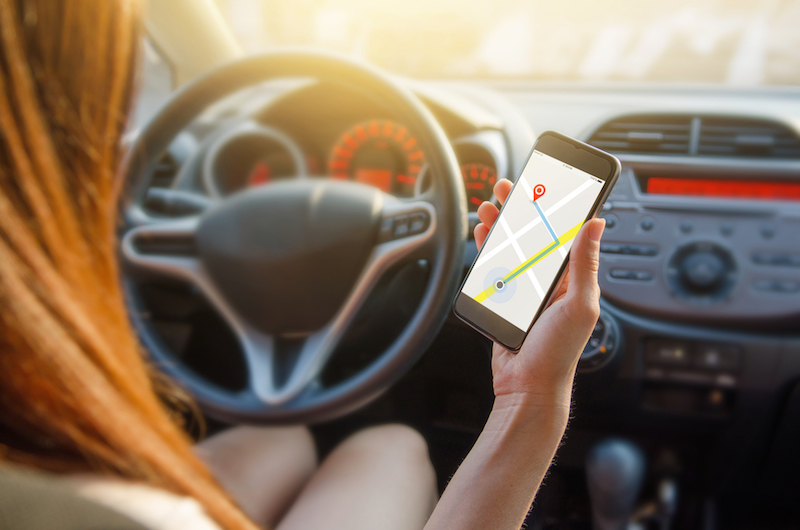Using GPS Devices May Switch Off Your Brain's GPS

If you've ever thought of your smartphone as your second brain, your analogy may not be far off. A new study shows that when we follow navigational instructions, such as those given by GPS devices, the parts of our actual brains that normally perform navigation remain quiet.
The findings show that "you delegate the task of navigation to your GPS, and you merely follow the directions, which is yet a demanding task, but perhaps not as demanding as actual route planning," said the study's first author, Amir-Homayoun Javadi, a neuroscientist at the University of Kent in the U.K.
This might mean that, over time, humans will get worse and worse at using their brains for pathfinding, Javadi told Live Science. [10 Things You Didn't Know About the Brain]
Our brain's inner GPS is one of the most prized wonders of the brain. The discovery of specialized nerve cells in the brains of mice that register where in the space the animals are has led to the Nobel Prize in Physiology or Medicinein 2014.
Those cells reside in a brain structure called the hippocampus. Numerous studies have shown we rely on the hippocampus for storing and recalling memories, planning future steps and generally finding our way in the world.
In the study, published today (March 21) in the journal Nature Communications, the researchers examined how the brain maps out the network of streets, plans for journeys and deals with unexpected detours.
Twenty-four participants navigated a simulation of the Soho area of central London while their brain activity was being monitored in a scanner.
Get the world’s most fascinating discoveries delivered straight to your inbox.
In some trials, the participants had to find their way to a destination by indicating a left or right turn at every junction. In others, they simply had to push a button to follow the optimized path decided by the computer.The researchers analyzed the activity patterns in each participant's hippocampus, as well as the prefrontal cortex, which is involved in planning and decision-making.
They found that when the participants had to navigate by themselves, without the help of GPS, the activity of the hippocampus and prefrontal cortex closely matched the decisions they had to make. For example, when they entered a new street, the hippocampus activity indicated that the brain was tracking changes in the number of available paths that they could take from there. When forced to make a detour, people's prefrontal activity spiked, showing increased activity in line with the difficulty of planning a new route.
However, when the participants followed the computer's instructions to navigate through the area, they did not activate these brain areas as much, the researchers found. [6 Foods That Are Good For Your Brain
"Our results fit with models in which the hippocampus simulates journeys on future possible paths, while the prefrontal cortex helps us to plan which ones will get us to our destination," said Hugo Spiers, a researcher at University College London's Institute of Behavioural Neuroscience, who led the study. "When we have technology telling us which way to go, however, these parts of the brain simply don't respond to the street network. In that sense, our brain has switched off its interest in the streets around us."
The consequences of using tools instead of our brains are not necessarily all negative, however. By delegating a demanding mental task to a device, you may free up mental resources to serve other purposes.
"It can be a shift in skills," Javadi told Live Science.
In fact, children who grow up with smartphones may develop a different set of skills from the generations of people who first learned to navigate their surroundings naturally, or to memorize information instead of looking up everything online.
Insights from research suggest that for today’s children, "their whole brain, not only their hippocampus, develops differently," Javadi said. "The brain constantly changes to adapt to different environments, needs and opportunities. Now imagine these environments, needs and opportunities are totally different since birth."
These changes, however, do not mean that children will not activate their hippocampus for navigation anymore, Javadi said. They might have a GPS for the streets, but they still need to navigate the labyrinths of the internet.
Original article on Live Science.




